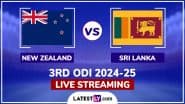New Delhi, Oct 29 (PTI) The Delhi High Court on Tuesday ordered auctioning of the Fortis trademark in connection with the Rs 3,500 crore arbitral award passed in favour of Japanese pharma major Daiichi Sankyo and against the former Ranbaxy promoters.
Justice Sachin Datta passed the order on an application filed by Daiichi Sankyo seeking the sale of the Fortis trademark, owned by RHC Healthcare Management Services Pvt Ltd which is one of the judgment debtors in the matter.
The application was filed in a petition by Daiichi Sankyo seeking execution of a Rs 3,500-crore Singapore tribunal arbitral award passed in its favour and against brothers Malvinder Mohan Singh and Shivinder Mohan Singh, former promoters of Fortis Healthcare, in April 2016.
"The Joint Registrar (Judicial) concerned of this court shall proceed with the public auction of the aforesaid asset of the judgment debtors viz. the Fortis trademark, and shall issue a proclamation...," said the court.
The court order noted the joint and several liability of the judgment debtors as on date was stated to be to the tune of around Rs 4,900 crore.
The counsel for the decree holder (Daiichi) submitted despite the best efforts, only a small fraction amount had been realised by the decree holders so far.
It was submitted if the Fortis trademark was allowed to be auctioned, it was expected that at least an amount in the range of Rs 191.5 crore could be realised.
Although Fortis Hospitals Ltd had raised objections earlier, its counsel later submitted there was no objection on its part to the auction of the trademark and requested the court to decide the plea.
The counsel for the judgment debtors also did not oppose the proposed auction of the Fortis marks.
However, some of them raised the issue of valuation of the trademark and urged prior to the auction, an auditor should be appointed to carry out the optimum valuation.
The high court said there was no merit in the contention and it wasn't appropriate to accede to the request to appoint an auditor prior to the auction.
The court asked the Joint Registrar (Judicial) to submit a report before it on the conclusion of the auction process and said the sale would be confirmed and concluded after the receipt of its permission.
A tribunal in Singapore had passed an arbitral award of Rs 3,500 crore in 2016 in favour of Daiichi and had ordered the Singh brothers to pay the damages for concealing information about their company facing a probe by the US Food and Drug Administration and the Department of Justice while selling its shares.
On January 31, 2018, the high court had upheld the international arbitral award passed in the favour of Daiichi Sankyo and paved the way for enforcement of the 2016 tribunal award against the brothers who had sold their shares in Ranbaxy to Daiichi Sankyo in 2008 for Rs 9,576.1 crore.
Sun Pharmaceutical Industries Ltd had subsequently acquired the company from Daiichi Sankyo.
The high court had, however, said the award was not enforceable against five minors, also shareholders in Ranbaxy, as they couldn't be held guilty of having perpetuated a fraud either themselves or through any agent.
Daiichi Sankyo had moved the Delhi high court seeking a direction to the brothers to take steps towards paying its Rs 3,500 crore arbitration award, including depositing the amount. It had also urged the high court to attach their assets, which may be used to recover the award.
On February 16, 2018, the Supreme Court had dismissed the appeal of the Singh brothers against the high court verdict upholding the international arbitral award.
The brothers had argued the award granted consequential damages which were beyond the jurisdiction of the arbitral tribunal and it couldn't be enforced under the provision of the Arbitration Act.
They had claimed Daiichi Sankyo was fully aware of all facts and still chose to retain the Ranbaxy shares, instead of terminating the agreement and returning them.
(This is an unedited and auto-generated story from Syndicated News feed, LatestLY Staff may not have modified or edited the content body)













 Quickly
Quickly

















